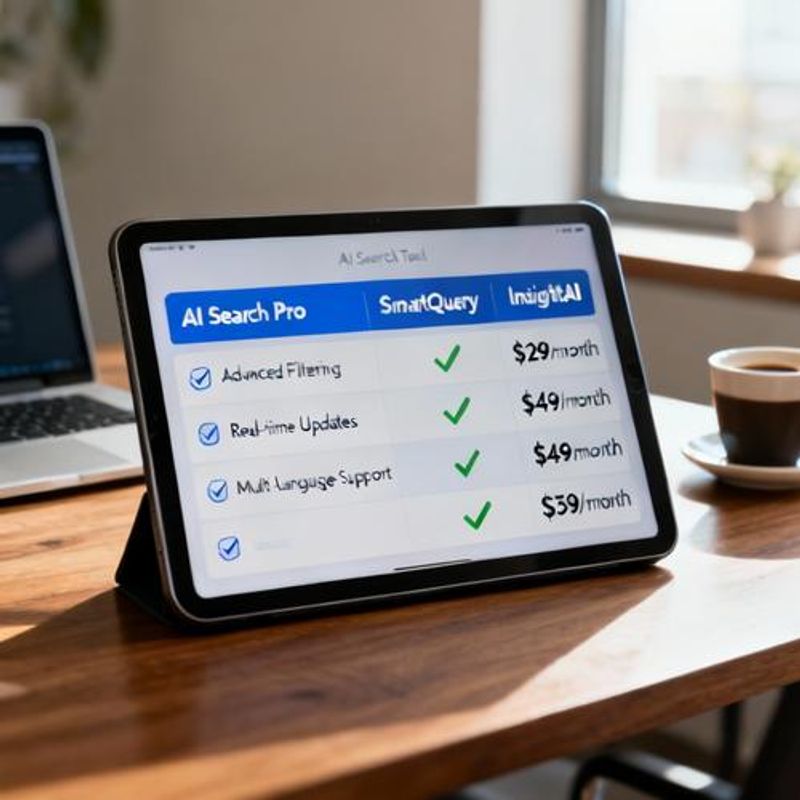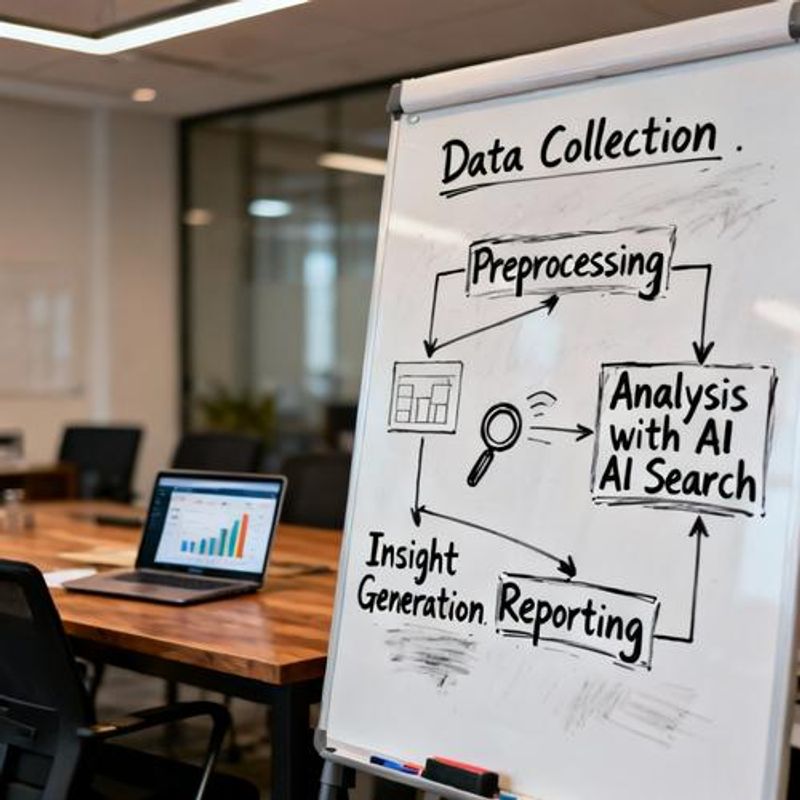10 Best AI Search Tools for Data Analysts in 2024: Complete Guide to Streamline Your Research Workflow

Spending hours hunting down the right datasets, research papers, and market intelligence while juggling multiple projects? You're not alone. Data analysts waste an average of 40% of their time on manual search tasks that AI search tools could handle in minutes. This comprehensive guide reveals the 10 most effective AI search tools specifically chosen for data professionals, complete with real-world use cases, implementation strategies, and cost-benefit analyses to help you reclaim those lost hours and focus on what you do best: extracting meaningful insights from data.

Why Traditional Search Methods Are Failing Data Analysts
Traditional search engines weren't built for data professionals. When you're searching for specific datasets, statistical methodologies, or industry benchmarks, generic search results often bury the valuable information under layers of irrelevant content. Data analysts face unique challenges: finding structured data sources, accessing gated research, understanding data provenance, and keeping up with rapidly evolving methodologies. These pain points compound when working on tight deadlines or exploring unfamiliar domains. AI search tools address these specific needs by understanding context, filtering for data quality, and presenting results in analyst-friendly formats.
Quick Wins: Top AI Search Tools at a Glance
Before diving deep, here are the standout AI search tools that deliver immediate value for data analysts:
- Perplexity AI - Best for research synthesis and academic paper discovery
- Semantic Scholar - Specialized for scientific literature and citation analysis
- Elicit - Automates systematic reviews and evidence synthesis
- Connected Papers - Visualizes research landscapes and finds related studies
- Bing Chat Enterprise - Secure AI search with real-time data integration

Academic and Research-Focused AI Search Tools
For data analysts working with academic research, statistical methodologies, or conducting literature reviews, specialized AI search tools offer significant advantages. Semantic Scholar uses machine learning to understand paper content beyond keywords, helping you find methodologically similar studies even when they use different terminology. Elicit goes further by automating systematic reviews - input your research question, and it extracts key findings, sample sizes, and methodologies from relevant papers. Connected Papers creates visual maps of research landscapes, making it easy to identify seminal works and emerging trends. These tools save hours of manual paper screening and help ensure you're building on solid methodological foundations.
Enterprise and Business Intelligence AI Search Solutions
Corporate data analysts need tools that integrate with existing security frameworks while accessing proprietary and public data sources. Bing Chat Enterprise provides ChatGPT-like capabilities with enterprise-grade security and real-time web access. Microsoft Viva Topics uses AI to automatically organize and surface institutional knowledge. Glean specializes in searching across internal company data, understanding context from documents, emails, and collaboration platforms. These enterprise solutions often integrate with existing BI tools and maintain audit trails required for compliance. When evaluating enterprise AI search tools, prioritize data governance features, API availability, and integration capabilities with your current tech stack.
Implementation Strategies and Workflow Integration
Start your AI search tool adoption with a pilot approach. Choose one tool that addresses your most frequent search pain point - whether that's literature reviews, dataset discovery, or competitive intelligence. Establish clear success metrics: time saved per search session, quality of results (measured by relevance and actionability), and impact on project timelines. Create standardized search protocols for your team, including prompt templates for common scenarios. For example: 'Find studies on [methodology] applied to [domain] published after [year] with sample sizes greater than [number].' Document successful search strategies and share them across your team. Integration works best when AI search becomes part of existing workflows rather than replacing them entirely.

Common Pitfalls and How to Avoid Them
Over-reliance on AI search without verification leads to incorporating outdated or biased information into analyses. Always cross-reference AI-found sources and check publication dates, especially for rapidly evolving fields. Prompt engineering mistakes reduce result quality - avoid overly broad queries like 'customer data analysis' and instead use specific, contextual prompts. Security oversights occur when using public AI tools with sensitive data - establish clear guidelines about what information can be included in search queries. Tool proliferation creates inefficiency - resist adopting every new AI search tool and instead master 2-3 that cover your core use cases. Finally, neglecting to validate AI-summarized findings can introduce errors into your analysis pipeline. Implement spot-checks and require source verification for critical insights.
Ready to Transform Your Research Workflow?
AI search tools represent a fundamental shift in how data analysts can approach research and discovery. Start with one tool that addresses your biggest time sink - whether that's academic research, dataset discovery, or competitive intelligence. Begin with a two-week trial period, tracking time saved and result quality. Most analysts see immediate benefits in literature review tasks, making this an ideal starting point. For enterprise implementations, begin discussions with your IT security team early to establish approved tools and usage guidelines. The compound effect of even modest time savings quickly adds up: saving 30 minutes per day on search tasks creates 2.5 hours weekly for higher-value analysis work. Ready to reclaim those hours? Download our AI search tool evaluation checklist and implementation timeline to get started this week.